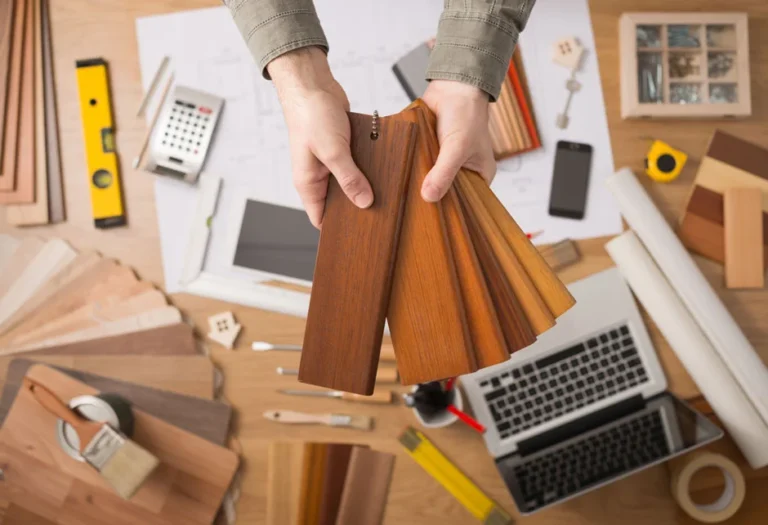Renovating a property is an exciting step — whether you’re upgrading your kitchen, extending your living space, or giving your garden a complete makeover. But before the real transformation begins, there’s one crucial decision that often gets overlooked: choosing the right building supplies.
Getting this part right doesn’t just affect your budget — it influences the quality, durability, and even safety of your finished project. With so many products and suppliers in the UK market, it can be overwhelming to know where to start. In this guide, we’ll walk you through how to choose building supplies that match your renovation goals, budget, and long-term needs.
Why Your Choice of Building Supplies Matters
Building materials are the backbone of any renovation. The wrong choices can lead to project delays, structural issues, or extra costs down the line. On the other hand, quality supplies suited to your specific project will:
- Ensure long-lasting results
- Improve energy efficiency and sustainability
- Add value to your property
- Keep your project on schedule and within budget
Every renovation is different — a bathroom refit requires very different materials from a loft conversion — so a one-size-fits-all approach simply doesn’t work.
Start by Defining Your Renovation Scope
Before you begin sourcing materials, you need clarity on what you’re renovating and the scale of the job. Ask yourself:
- Are you doing structural changes or cosmetic upgrades?
- Is this a DIY project or will you hire tradespeople?
- How long do you want the materials to last?
- Are there any environmental or sustainability goals?
Having clear answers will help you choose supplies that meet both functional and aesthetic needs — and ensure you’re not overspending on materials you don’t need.
Know the Core Categories of Building Materials
Depending on your project, you’ll need to explore different types of building supplies. Here are some common categories and where they fit in:
- Timber: Ideal for framing, roofing, garden structures, and interior design touches like cladding or flooring.
- Plasterboard & insulation: For walls, ceilings, and improving energy efficiency.
- Aggregates & cement: Essential for foundations, driveways, and structural work.
- Roofing materials: Tiles, felts, battens — all must be chosen based on weather resistance and style.
- Fixtures & fittings: Screws, bolts, adhesives, and finishes play a vital role in quality and safety.
Knowing what each material does helps you compare products wisely and avoid buying the wrong spec or grade.
Balance Quality with Budget
Renovations are notoriously tricky when it comes to budgeting — costs can creep up fast. While it’s tempting to go for the cheapest materials, that strategy can backfire in the long term.
Low-cost supplies often come with trade-offs like:
- Lower durability
- Limited manufacturer warranties
- More frequent maintenance or replacement
Instead, aim for a balance. Focus on high-quality materials where it matters most — structural components, insulation, exterior finishes — and save on areas where visual impact is the priority.
Get quotes from multiple suppliers, and don’t forget to factor in VAT and delivery charges. Many online suppliers offer bulk discounts, so it’s worth buying all your core materials from the same source if possible.
Choose the Right Supplier
A reliable supplier is just as important as the products themselves. Here’s what to look for:
- Wide product range: One-stop suppliers save time and simplify logistics.
- Stock availability: Delays due to out-of-stock materials can hold up your entire renovation.
- Clear product descriptions: Ensure dimensions, treatment types, and standards are listed.
- Delivery options: Next-day or scheduled delivery is helpful when managing a build timeline.
- Customer support: A knowledgeable team can help you choose the right items and offer technical guidance.
Don’t forget to check customer reviews or ask other tradespeople for recommendations — word of mouth often reveals a lot about a supplier’s reliability.
Think About Sustainability
With energy efficiency standards getting stricter and more homeowners wanting eco-friendly solutions, it’s worth considering the environmental impact of your building supplies.
Look for:
- FSC-certified timber (sustainably sourced)
- Recycled or recyclable materials
- Low-VOC paints and adhesives
- Insulation with a high thermal rating
Some suppliers now clearly label sustainable products or offer green alternatives — which may also help reduce your energy bills in the long run.
Don’t Forget the Extras
It’s easy to focus on major items like timber or cement, but many renovation delays happen because of forgotten accessories — fixings, sealants, underlay, brackets, and so on.
Before placing an order, create a checklist of:
- Tools you’ll need
- Accessories for each material
- Finishing products (paints, trims, coatings)
This ensures everything arrives together, and you won’t be stuck making last-minute trips to the local hardware store.
Final Thoughts
Choosing the right building supplies is a vital part of planning a successful renovation. It’s not just about picking materials that “get the job done” — it’s about making smart choices that improve the quality, efficiency, and durability of your project.
Take time to understand your renovation goals, research your material options, and partner with a supplier who values quality and service. With the right supplies in hand, your project will be set up for success — from the first nail to the final finish.


